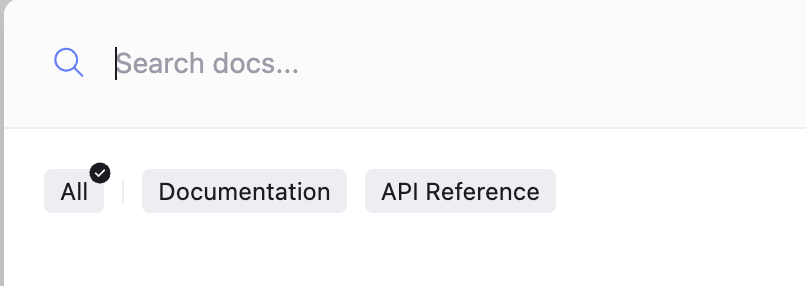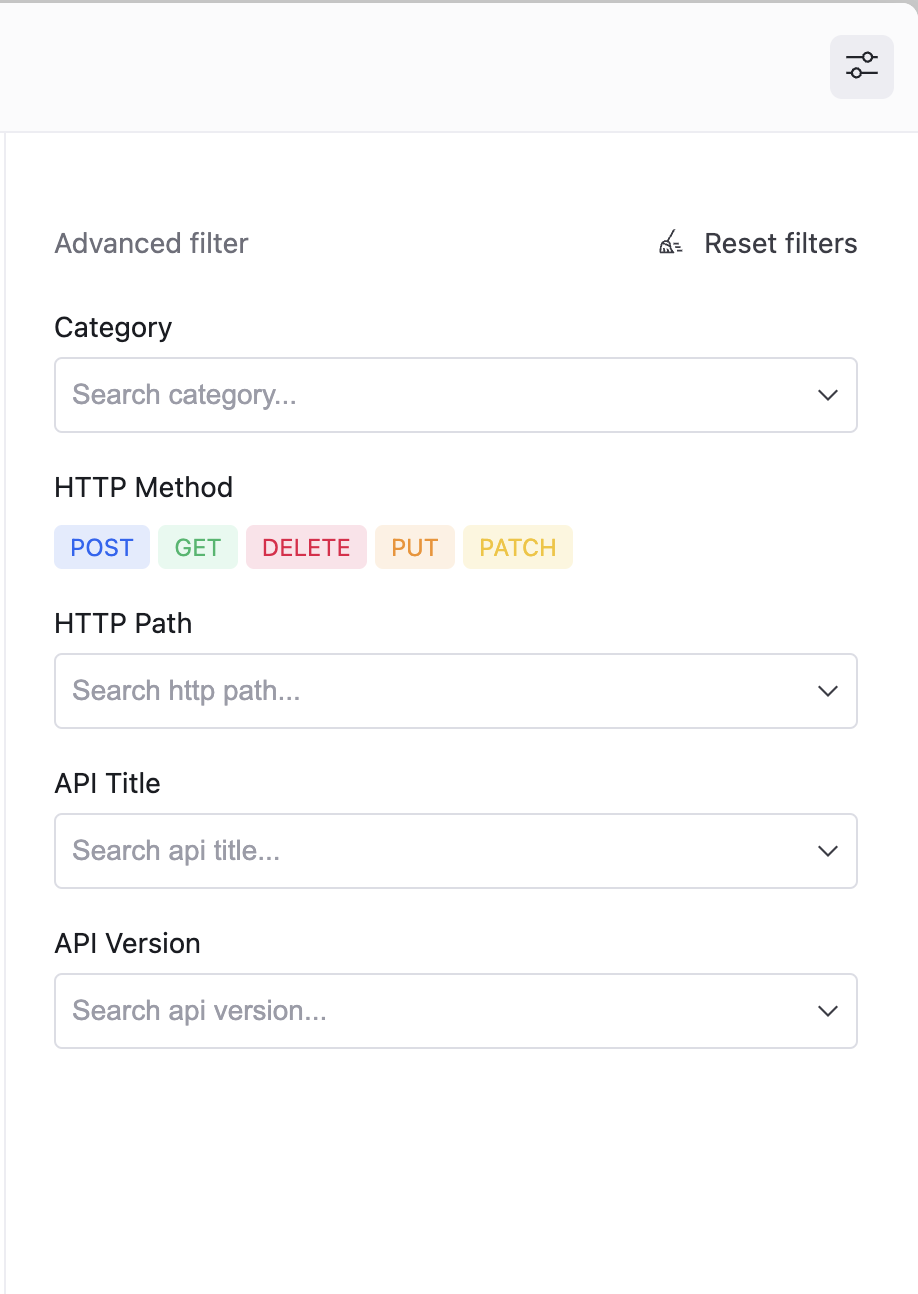Configure search facets
Search facets enable you to refine search results based on specific criteria, making it easier to find relevant information quickly. With facets, navigating complex sets of documentation becomes more effective, as you can filter results by categories, versions, tags, or other relevant custom attributes. This capability enables you to narrow your search to chosen content eliminating irrelevant results.
Before you begin
Make sure you have the following:
- a
redocly.yamlfile located in the root directory of your project. - searchable content including Markdown and OpenAPI files.
Available search engines
Redocly supports two types of search engines for your project:
- FlexSearch: the default search engine that supports limited facets configuration. You can only adjust the group facet.
- Typesense: an advanced search engine with full facets configuration capabilities.
Default facets configuration
The default search facets configuration applies to all documents.
There are two predefined search categories that are configured by the group facet field:
- Documentation: includes all Markdown files present in the project.
- API Reference: all OpenAPI, GraphQL, AsyncAPI, and SOAP API definitions.
These categories are visible when you open the search dialog:

For search engines that support full facets configuration capabilities (see Available search engines) Redocly provides an additional filter panel featuring predefined facets for HTTP Path, HTTP Method, API Title and API Version:

Default facets list
- name: Category
field: redocly_category
type: multi-select
- name: HTTP Method
field: httpMethod
type: tags
- name: HTTP Path
field: httpPath
type: multi-select
- name: API Title
field: apiTitle
type: multi-select
- name: API Version
field: apiVersion
type: selectHow to configure search facets
The search facets feature enables you to create custom facets or override the default configuration using redocly.yaml config.
The following is an example of how to override the default redocly_category facet:
search:
filters:
facets:
- name: Custom
field: redocly_category
type: select This configuration allows you to change name and type for default facet fields that are visible in the advanced filter panel.
The following is an example of how to create custom facet:
search:
filters:
facets:
- name: Owner
field: owner
type: select Apply facets to files
To apply facets to files, use metadata properties. You can assign specific metadata to your files, such as custom facet fields for advanced filtering or predefined ones like redocly_category for grouping.
The following is an example of how to apply facets to Markdown files using frontmatter:
---
metadata:
redocly_category: Custom
owner: Redocly
---The following is an example of how to apply facets to openapi definitions:
openapi: 3.0.0
info:
version: 1.3.3
title: Swagger Petstore
x-metadata:
redocly_category: Custom
owner: RedoclyAlternatively, you can use the metadataGlobs property in the redocly.yaml configuration file to apply facets to files using a glob pattern, for example:
metadataGlobs:
'museum/**':
redocly_category: Museum
'payments/**':
redocly_category: PaymentsGroup facet
The group facet categorizes the search results and is displayed in the top panel of the search dialog for quick switching between categories.
Only redocly_category facet field is used as a group facet.
Resources
- Reference the options for configuring search in your project in the search reference documentation.
- Learn about metadataGlobs configuration options.